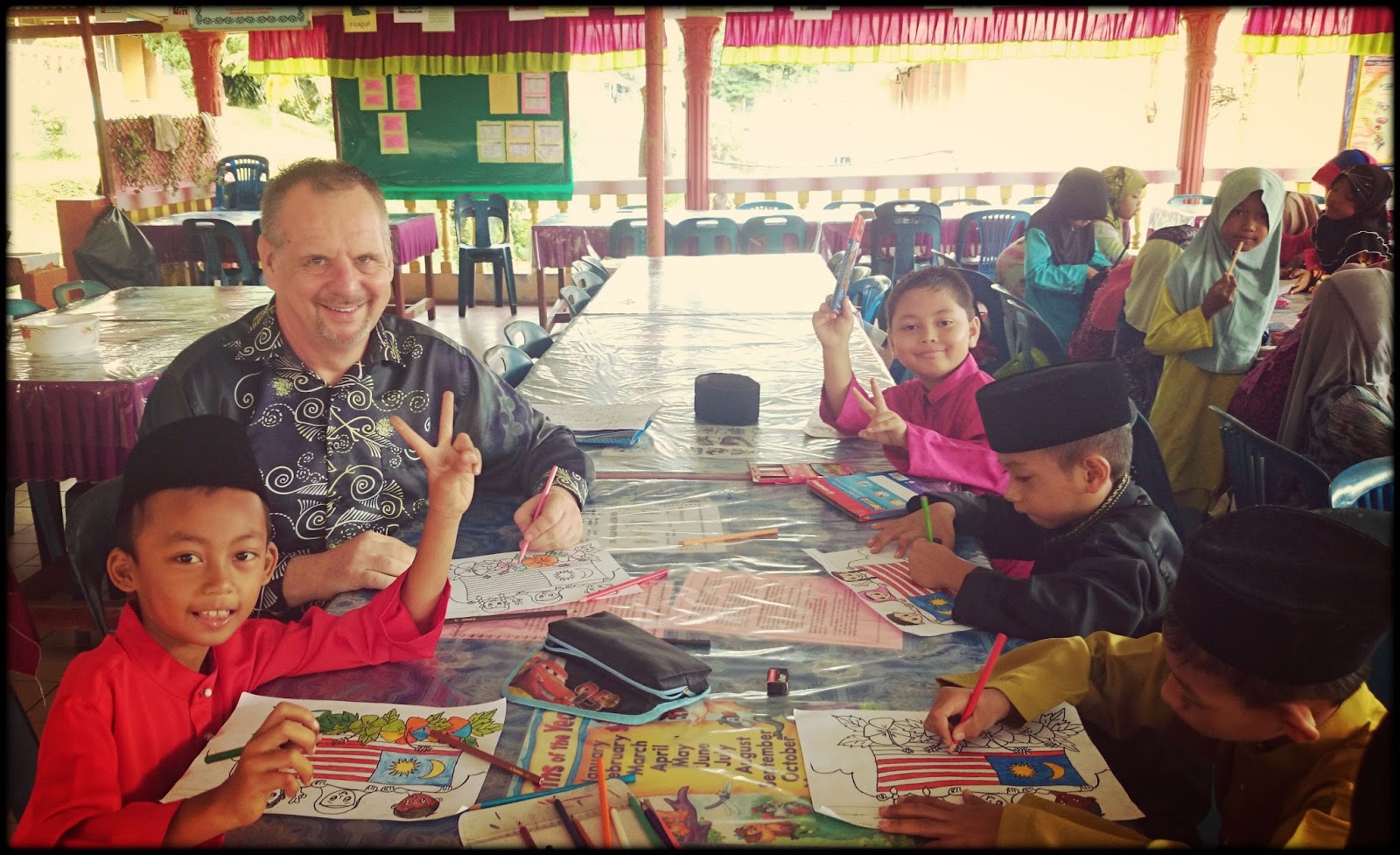An interview with Khairizani Bt Jantan at SK Tembeling
 |
| Talking about content-based teaching |
JINKS: The fruit salad activity is in the Year 3 book; have you made a fruit salad with Year 3 pupils before?
KHAIRI: No, never. This was the first time.
JINKS: I know you have done other activities with the class, though. I remember a lesson where pupils wrote their own restaurant menus. They loved that.
KHAIRI: Yes. Before we made the salad, in the previous lesson, I asked them to make a list of things they needed for a fruit salad party. They really enjoyed doing that as well. I also use a lot of activities in the mathematics class. The children like measuring things, and weighing them as well. They really, really enjoy it.
JINKS: How do you control such a lively class?
KHAIRI: They are sometimes quite difficult to control, so for the fruit salad party I put them into groups, quite big groups. I made one person the chef for each group.
JINKS: I noticed that the language focus was also quite strong, even though it was a content-based lesson.
KHAIRI: Yes. The written instructions give structure. They didn't have to write everything down, but some pupils could take notes in their own words. Not everyone could be the chef in the class, so the others say they are going to make a fruit salad at home.
JINKS: They enjoyed it that much!
Stephen-Peter Jinks (ELC Jerantut)






















